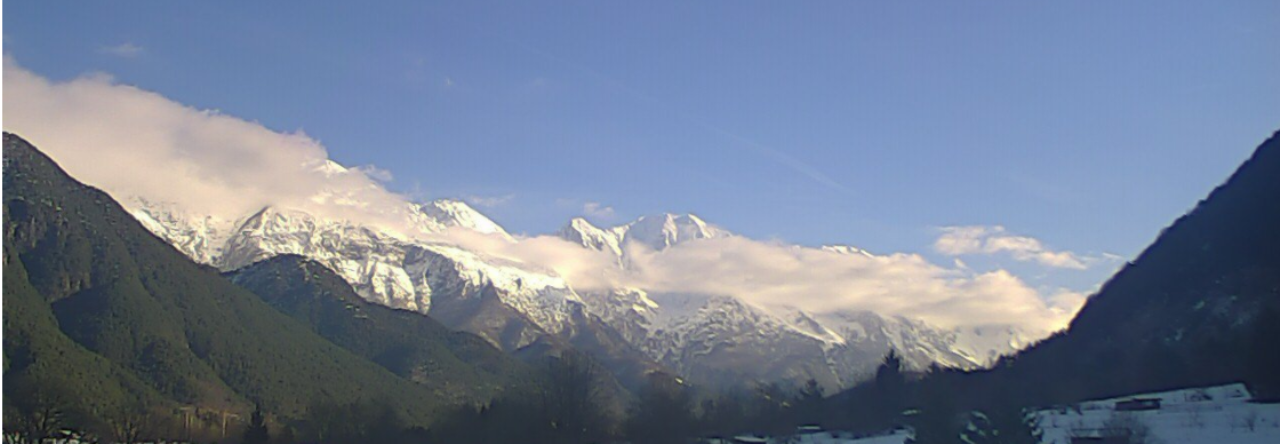Da qualche tempo abbiamo iniziato delle collaborazioni con studiosi indipendenti, per approfondire lo studio della lingua resiana. Nella continua ricerca abbiamo individuato, nel resiano, elementi interessanti e varie caratteristiche arcaiche sia nella grammatica, sia nel lessico, che nella
fraseologia del resiano. Lo studio è servito innanzitutto per svelare delle peculiarità, ancora sconosciute. Nonostante i tanti annunci, finora abbiamo sentito sempre l’apparentamento del resiano con una lingua straniera, ma non abbiamo letto articoli che chiariscano le tante particolarità
e curiosità della lingua resiana.
Facendo un continuo lavoro di approfondimento, abbiamo trovato elementi di similitudine anche con la lingua russa. Questo non dimostra che i Resiani siano Russi, ma svela una grande vicinanza con la loro antica lingua slava. Sulla nostra identità, anche Baudouin de Courtenay nella relazione agli Atti del IV Congresso internazionale degli orientalisti (Firenze 1878) aveva scritto: In simile maniera possiamo dimostrare, che i Resiani non sono Bulgari, non Serbo-Croati nel senso stretto, ecc., e che ci rappresentano, dal punto di vista glottologico, una stirpe slava indipendente.
Gli studiosi con cui collaboriamo hanno trovato particolarmente interessanti le parole:
böholo < böhow lok ‘arco divino, arcobaleno’;
Bohow-din – ‘giorno divino, domenica’;
prёdnёn < prёd dnёn – ‘prima del giorno, = mattina presto’;
točikej < v toliče kej (< toliko, ‘un poco’), ‘in un poco = appena poco fa’;
počasu < po času, ‘secondo il tempo, =lentamente’;
wdümu < w dümu, ‘nel fumo, = velocemente’ (cioè correre tanto da alzare la polvere, come un
fumo)’.
Hanno imparato le espressioni:
nё morёt gha vïdёt, odiare, (vedi ‘nenavidet’/ненавидеть = odiare; in russo, ceco, slovacco,
polacco);
tet śa tin, ‘andare dietro a quello, interessarsi’;
tet na-ta prit , ‘andare in avanti, proseguire’;
to prïdё raćet ‘questo viene a dire, cioè’.
Hanno conosciuto le formule avverbiali per l’inizio delle fiabe:
tadaj dän din, ‘allora un giorno, una volta’;
prit nu prit, ‘prima e prima, una volta, tanto tanto tempo fa’;
nur, ka to bëše, ‘c’era una volta’.
Abbiamo individuato queste frasi, che sono familiari e comuni anche all’orecchio russo:
Buh dej no lehko nuć, in russo ‘Боже, дай нам легкую ночь/Bože daj nam legkuju noč’;
Spïtё lёpu, in russo ‘Cпите xорошо/ ‘Spite horošo’, = Dormite bene, Buona notte!
Dёlitё döbär vijäč anu stüjte lёpu śdrow!, in russo ‘Cчастливого пути и оставaйтесь в добром здoрoвe/ Sčastlivogo puti i ostavajtes’ v dobrom zdorove! = Buon viaggio e state in buona salute!
Maróka! (escl.: accidenti, caspita!), In russo (id.) морока/moroka: escl.: accidenti! caspita! [BdC 1895:339; Maróka!, ropotä́n anu uštinän – ‘Accidenti! Litigioso e testardo’].
Hanno trovato molto interessanti i nostri proverbi, cito uno in particolare:
Vinče ghrében nu ku patalèn, ‘più grande la cresta del gallo = tanto fumo e poco arrosto’.
Si sono soffermati in modo particolare sul nostro modo di esprimere le relazioni spaziali (posizione e direzione del movimento), utilizzando preposizioni composte:
ta-na Bile (a Resiutta), tu-w Bile (a San Giorgio), ta-na Ràvänze (a Prato), ghorë́-na Ravänzo (su a Prato), dö-w Ghumḯn (giù a Gemona), ecc.
Insomma abbiamo intrapreso una collaborazione interessante e proficua, anche per dimostrare che la lingua resiana non è degli sloveni, né degli slavisti filosloveni, ma dei Resiani.
WÀDLO – un termine scomparso dal resiano
WÀDLO – rinsecchito, avvizzito, appassito, fiappo.
Avevo trovato per la prima volta questa parola in uno scritto sloveno che citava wàdlo come appartenente alla lingua resiana, senza però indicarne il significato, né in sloveno né in italiano. Incuriosita molto, ho chiesto informazioni a tutti gli amici resiani, anche a mia madre che era del 1929, ma nessuno l‘aveva mai sentita.
Un giorno, casualmente, mentre leggevo il testo di Baudouin de Courtenay Materialien I (1895) con mia grande gioia, finalmente la mia ricerca era finita, ho trovato il termine che avevo tanto cercato.
Nella cartella n. 723 si legge: Trébi dažŋá. Wsœ čísto wádlo, sǘho. ‘C’è bisogno di pioggia. È tutto appassito, secco’. Nel Materialien I Baudouin de Courtenay ha tradotto i testi resiani in tedesco e quindi ho potuto leggere Man braucht den Regen. Alles ist durch und durch verwelkt (welk), trocken e fortunatamente verificarne il significato: ‘C’è bisogno della pioggia. Tutto è completamente appassito (appassito), secco’; con il rimando a piè di pagina: **** “Flapp”.
Quindi è accertato: WÀDLO, è un termine della lingua resiana con il significato di ‘rinsecchito, avvizzito, appassito, fiappo’.
Resta il rammarico per una perdita preziosa nel registro lessicale della lingua resiana: ma fortunatamente il termine wádlo non è scomparso del tutto, perché si è conservato nella forma t’ë sa śawàlilo ‘si è infeltrito’. Se ne deduce che wadlo è l’aggettivo derivato da un ipotetico verbo *wadlet; nel nostro caso da *(sa) wadlet ‘rinsecchire, avvizzirsi, infeltrirsi’, da cui deriva l’espressione t’ë sa śawàlilo ‘si è infeltrito’, derivato da *śawàdlilo. La sparizione della ‘d’ è la conseguenza dell’assimilazione delle due consonanti ‘-DL-’, che nel tempo ha prodotto > ‘-L-’ [-dl- > -l-].
Qui mi sorge spontaneo l’invito a tutti i resiani ad inserire il termine wádlo nell’uso quotidiano della lingua resiana. Ko ë süš sa mörë raćet: t’ë wsë wádlo, sǘho. Tradotto in italiano: ‘Quando c’è siccità si può dire: è tutto appassito, secco’.
